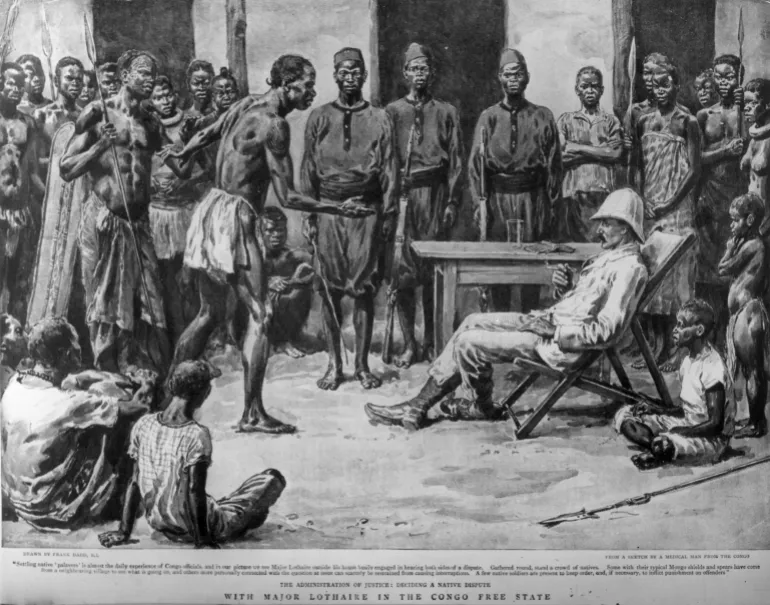
By Yasmin Carpenter
The concepts of colonialism, coloniality, and decoloniality describe a historical and epistemic continuum that links past empires to present global hierarchies of power and knowledge. While colonialism refers to the formal systems of domination established through conquest, occupation, and empire, coloniality designates the endurance of those logics long after colonial administrations have disappeared. Decoloniality, in turn, emerges as a project of resistance and re-existence—an effort to delink from Eurocentric narratives that shape what is considered truth, knowledge, and civilization.
From Modernity to Coloniality
Decolonial thinkers locate the birth of modernity not in the European Enlightenment of the eighteenth century, but in the year 1492, with the “discovery” of the Americas and the beginning of European control over the Atlantic world (Escobar 2003). This date marks the constitutive entanglement of modernity and coloniality: modernity did not precede colonialism, it was made possible by it. The wealth, science, and philosophical authority of Europe were built upon the exploitation, enslavement, and epistemic subjugation of colonized peoples.
Aníbal Quijano’s concept of the coloniality of power (Quijano 2000) captures this enduring relationship. The racial hierarchies created to justify conquest became structural principles of the modern world, organizing labor, culture, and knowledge along lines of superiority and inferiority. Coloniality, therefore, is not a historical episode but a logic that continues to shape the world system: capitalism, patriarchy, and Eurocentrism are not separate phenomena but interlocking dimensions of the same matrix of domination.
The Three Dimensions of Coloniality
Walter Mignolo and other scholars of the modernity/coloniality project describe three interrelated faces of coloniality: power, knowledge, and being (Mignolo 2007; Maldonado-Torres 2007).
- Coloniality of power refers to the global hierarchies that position Europe—and later the United States—at the center of political and economic order (Quijano 2000).
- Coloniality of knowledge exposes how Western epistemology presents itself as universal and neutral, erasing the geo- and body-political location from which it speaks—a position Mignolo calls the “hubris of the zero point”(Mignolo 2000).
- Coloniality of being, elaborated by Nelson Maldonado-Torres, highlights the ontological wound produced by centuries of racialization, enslavement, and dehumanization (Maldonado-Torres 2007).
These dimensions are mutually reinforcing. The claim to epistemic superiority—coloniality of knowledge—legitimates political and economic domination—coloniality of power—which in turn defines who is fully human and who is not—coloniality of being. Together, they produce what Grosfoguel (2008) describes as a heterarchical system of racial, sexual, economic, and epistemic hierarchies that structure the modern world.
Decoloniality: Epistemic Disobedience
In response to this matrix, decoloniality arises as an act of epistemic disobedience (Mignolo 2007). It does not simply oppose coloniality from within the same framework but seeks to delink from it—recovering other ways of knowing and existing that have been silenced or rendered “non-existent” by Western rationality (Santos 2002). Decolonial thought thus rejects the universal pretensions of modernity and reaffirms the diversity of epistemologies, cosmologies, and life projects produced from the margins, the borders, and the Global South.
For Mignolo, decoloniality is both critique and practice: a process of re-existence that reclaims knowledge, language, and identity from the colonial wound. It is not a mere theoretical stance, but a lived and collective struggle to dismantle the epistemic and material legacies of empire.
—
This entry is part of an ongoing series exploring the core concepts of decolonial thought within the DCC Encyclopedia. To continue reading, click here to explore related entries on coloniality of power, coloniality of knowledge, and decoloniality.
—
References
- Escobar, Arturo. Worlds and Knowledges Otherwise: The Latin American Modernity/Coloniality Research Program. Cultural Studies, 2003.
- Grosfoguel, Ramón. “Transmodernity, Border Thinking, and Global Coloniality.” Review 31(3), 2008.
- Maldonado-Torres, Nelson. “On the Coloniality of Being.” Cultural Studies, 21(2–3), 2007.
- Mignolo, Walter D. “Desobediencia Epistémica: La Opción Descolonial.” Revista Gragoatá, 2007.
- Quijano, Aníbal. “Coloniality of Power, Eurocentrism, and Latin America.” Nepantla: Views from South, 1(3), 2000.
- Santos, Boaventura de Sousa. “Para uma Sociologia das Ausências e uma Sociologia das Emergências.” Revista Crítica de Ciências Sociais, 63, 2002.
